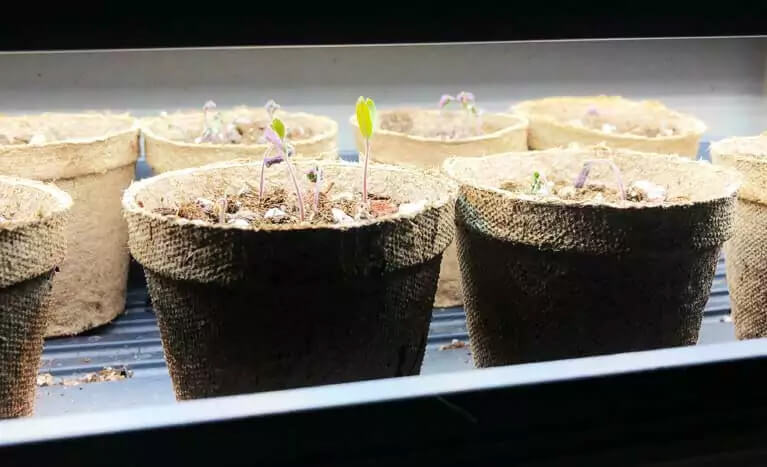In January of 2021, I decided to no longer participate in the mind-drowning activity of modern day TV consumption. I opted to improve myself through other activities. Cancelling television has brought new and exciting hobbies; one is homestead gardening.
Gardening is entirely underrated, and it’s sad that after only two or three generations, widespread gardening knowledge has drifted away. I’m not talking about a garden speckled with a flower here and there; rather, I’m talking about a self-sustainable garden that provides for the family every year. This was common knowledge, but with food stores readily available, core gardening knowledge has dwindled from the culture.
A majority of my great-grandparents had large families and provided food through gardening, canning, and living off the land. One side of the family had immigrants fleeing Eastern Europe as war loomed on the horizon. My great grandpa boarded a ship with all he owned strapped to his back and sailed out to the United States; then traveled overland out west to an unknown territory where he took up a large settlement to homestead on. This was harsh country with unforgiving weather and deadly winters. My great grandma arrived, joining him on the homestead and giving birth to 12 children. They lived in train cars on the prairie and provided for themselves—no grocery stores or 7-11s to run to.
As my curiosity grew about homestead gardening, I couldn’t help but think about my immigrant relatives who moved across the globe and lived on the prairie with their knowledge and survival skills. I asked myself:
“Could I survive on their homestead with the knowledge I have now?”
Most likely not. The information of how they provided for a large family for years has disappeared through the generations. I never met them, and I was too young when my Grandma passed away to inquire about what she learned on the homestead growing up. I do recall the last night I spent with my dying grandma. She told stories of the homestead, one about her dad, working on an oil-well near the homestead. The well exploded, launching him 50 feet into the sky, and he survived lol. I guess people were built different back then.
I never had the chance to learn about gardening in a harsh environment or how my great grandma cared and provided for her many children year after year. I do know they grew about everything you can find in a grocery store now—even many of the imported vegetables. How did they grow enough food to provide for all those mouths? What did they hunt? What did they trade? HOW did they survive? With all our modern day conveniences, it’s difficult to fathom, but I know the truth can be uncovered with self-study.
Being self-sufficient is a wonderful skill, and I’m working towards that goal. I plan to provide food for myself and not depend on inventory levels at the local supermarket. We survived the Covid-19 pandemic—when grocery store shelves became a barren wasteland! A garden lets you avoid panic and fear because you depend on yourself for survival—like our ancestors did.
I decided to build a raised planter in my backyard. I built it tall so my puppy can’t destroy it and with enough space to cultivate my own food. You don’t need a big planter like this; instead, you can get a tiered planter like this Mr. Stacky 5 tier planter to save room and grow efficiently in limited space. My redwood planter provides me with new problems—like how to fill it! It’s 28 inches high, 8 feet long, and 4 feet wide, so I need a lot of soil. I will most likely end up buying gardening soil in bulk, but I could also create my own by composting, at the expense of time. This is only one of several obstacles I must overcome.
I began my gardening journey this year with cherry tomatoes. Due to my limited growing season, I had to start seedlings about 8 weeks before the final frost. One week after the final frost (hopefully final!), I will transplant the tomato sprouts outside into my garden. Growing and caring for seedlings has been no simple task. It’s my first time growing a plant from seed, so I’m learning as I go. I planted about 45 seeds in little seed trays like compostable peat pots like these Daniel’s Peat Pots. Peat pots allow you to directly put into the soil and they will decompose on their own—you don’t have to worry about transplanting.
Two weeks in, and some seedlings are faltering. They are under grow lights 16 hours a day, and I carefully water them when they are dried. Most of the seedings sprung forth, but about a quarter of them have fallen over. I read that this may be due to a number of gardening issues. I’m currently nursing them back to health and not over watering. I often wonder why growing seeds seems so complicated when my great grandparents probably did it with ease—no grow lights for their crops!
This gardening season, I will plant my cherry tomatoes (if they survive) and make plenty of pico de gallo to scoop onto my tortilla chips or toast. I also have a special whiskey barrel planter like this. I will plant strawberries in! It’s too cold for strawberries to grow outside right now, and I haven’t quite learned how to make mini greenhouses yet, so I’m waiting for warmer weather to begin that adventure. I’ll purchase strawberries from a local nursery, but I hope to plant from seed one day in the future!
I’m grateful for hobbies that keep me entertained and grow my mind as I continue learning various subjects. I’ll keep you posted on how my modern day homestead garden progresses throughout the year!
My tips were featured on Rent. Check it out: Winter Houseplant Care: Keep Your Plants Happy.

